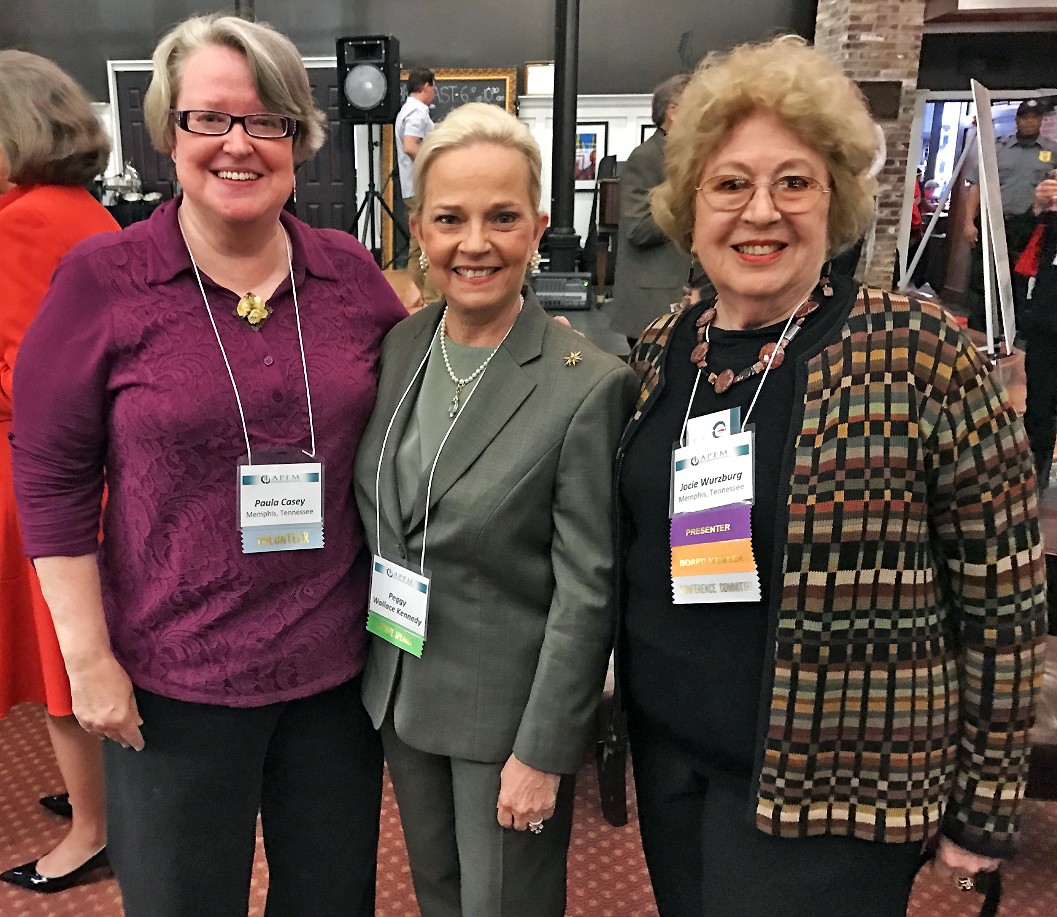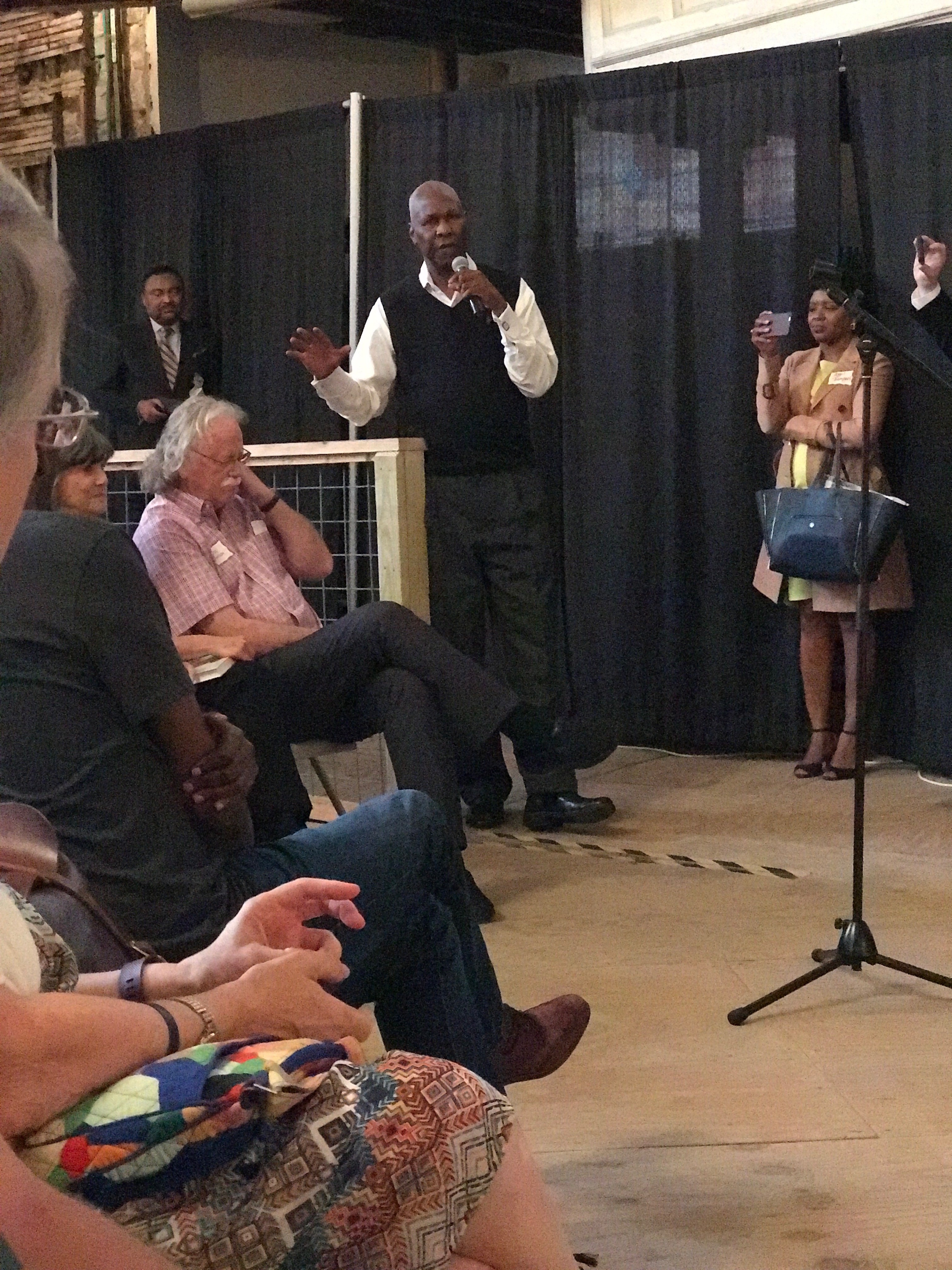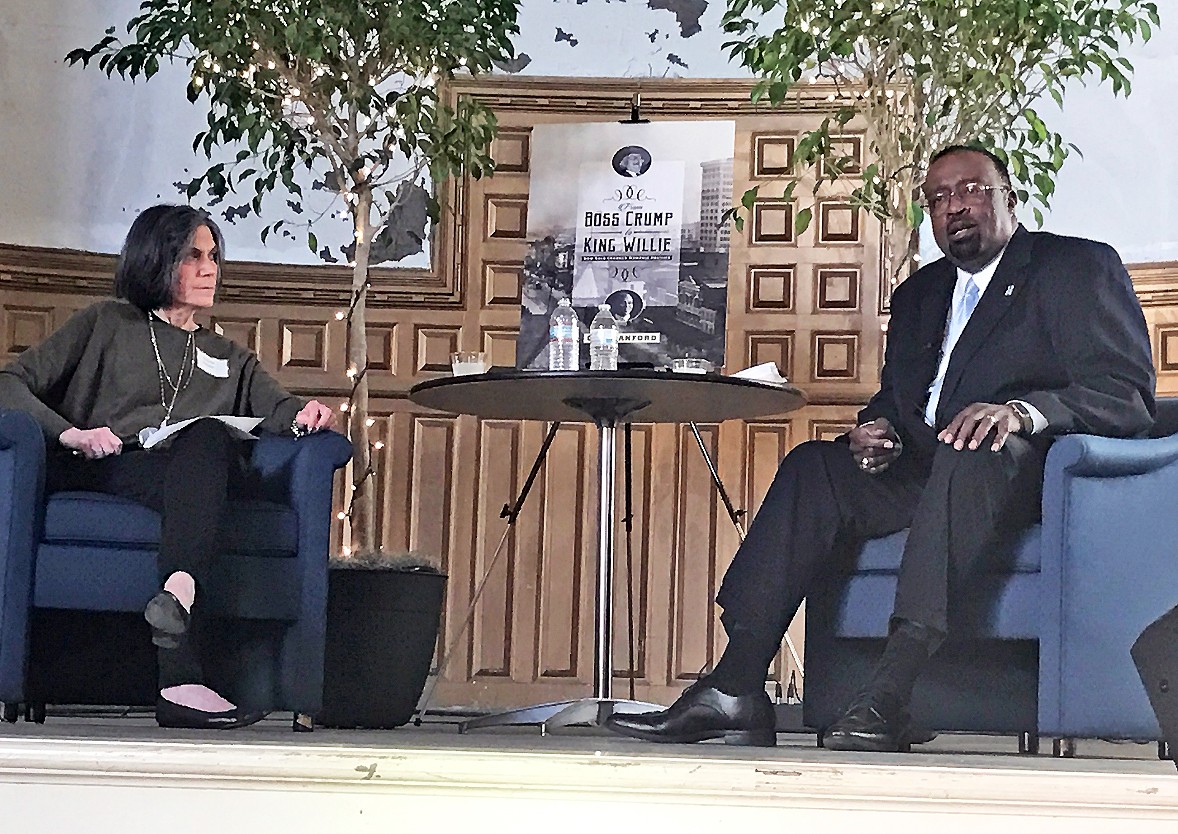 JB
JB
“We must embody the character and teachings of Dr. King and demonstrate that no one has a corner on the market of the principles of patriotism, compassion, and equality. There are times in our lives that we cannot change the direction of the wind, but there are always opportunities to adjust ourselves for a more just America. And let us pray that we can proclaim that it is through the peace that comes with understanding that we should, we must, and we shall overcome.”
— Peggy Wallace Kennedy, daughter of the late Governor George Wallace of Alabama, speaking to the Academy of Professional Family Mediators National Conference at the downtown Doubletree Hotel, Thursday, March 30. (Kennedy, center, is pictured here with Paula Casey (left) and Jocelyn Wurzburg, hostess for the event.)
Kennedy, a teen at the time of her father’s ill-fated 1962 pronouncement of “Segregation Today, Segregation Tomorrow, Segregation Forever” from a doorway of the University of Alabama, disagreed intensely with her father’s position, but, as she said in an interview with the Flyer, “I had no power to speak in my family.” She speaks now, frequently and powerfully, on the theme of racial equality, and has joined U.S. Representative John Lewis, a hero of the 1965 Selma march, in a symbolic re-enactment of the crossing of the Edmund Pettus bridge there.
She believes that her father, who, late in life, after being wounded by an assassin, began trying to make amends, came to sincerely regret actions that he took, she said, not for reasons of the heart but for reasons of political expediency.,
 JB
JB
“It was in this particular Clayborn Temple, I was speaking on the Martin Luther King Celebration on this stage [in 1991], and Congressman Harold Ford walked in from this entrance here and what the audience was talking about was, they wanted Mayor Hackett out, and they wanted a black mayor. I really didn’t want to be the Mayor. Harold Ford walked in and I said…”Harold, you heard the people. Take leadership!”….That was the genesis of the People’s Convention. I did not seek the Mayor’s office…They said, “Dr. Herenton, we want you to be the Mayor. That would give it credibility.’ I said, ‘I don’t want to be the Mayor.’ I was selected on the first round, 70-something percent, and all of a sudden, I said, I’ve got to run!”
— Willie Herenton, former five-times-elected Mayor of Memphis, speaking simultaneously in historic Clayborn Temple in Memphis on Thursday, March 30, on how he came to be a candidate and became the first black mayor of Memphis in 1991. (The occasion was the unveiling of Otis Sanford’s book, From Boss Crump to King Willie: How Race Changed Memphis Politics.)
Sanford (right, below), was interviewed on stage at Clayborn by Susan Thorp. The author, former managing editor of The Commercial Appeal and current holder of the Hardin Chair of Excellence in Economic/Managerial Journalism at the University of Memphis, was scheduled to appear also at Square Books in Oxford, MS, at 5 p.m., Monday, 4-3-17.
 JB
JB